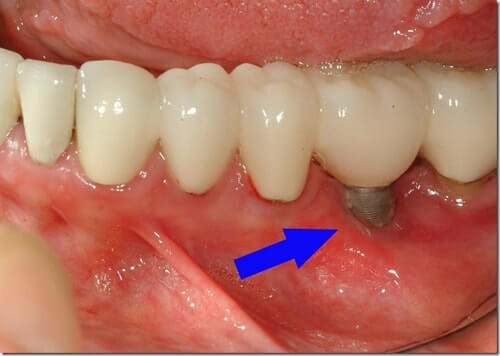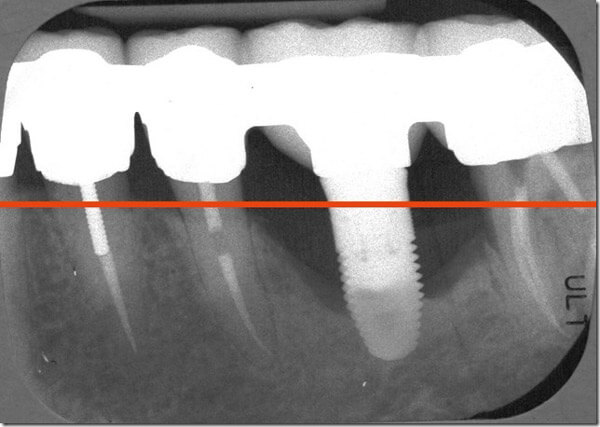
Even if you did not receive your dental implants from us, we are happy to help if you are concerned about your implants. Schedule an appointment with us today and Dr. Roll or Dr. Williams can take a look at your implants and help you keep them for life!
If you’re one of the many Pittsburgh residents with dental implants, you know the transformative impact they can have on your smile and overall quality of life. Maintaining your dental implants is essential for preserving their function, appearance, and health over time. This guide will walk you through the best daily and professional practices to keep your implants healthy, prevent complications, and ensure that your investment in your smile lasts for years to come.
Why is Dental Implant Maintenance Important?
Dental implants, while incredibly durable, aren’t immune to issues. Just like natural teeth, implants are susceptible to plaque buildup, gum inflammation, and in some cases, bone loss. Without proper care, these problems can escalate, leading to conditions like peri-implantitis, an infection that can ultimately cause implant failure. Fortunately, consistent and thorough maintenance can prevent most implant-related issues. This is why we encourage Pittsburgh residents to follow a dedicated home-care routine and visit our office regularly for professional check-ups.
Daily Care Tips for Dental Implants in Pittsburgh
Maintaining your dental implants at home involves more than just brushing once a day. Here are the steps you should take to keep your implants clean, plaque-free, and healthy:
1. Use a Soft or Electric Toothbrush
- Why: A soft-bristled toothbrush is gentle on both natural teeth and implants, allowing you to clean around the implant without scratching the surface. Electric brushes provide consistent motion and pressure, making it easier to reach difficult spots.
- How: Brush all surfaces of your implants at least twice a day, ideally after meals, to remove food particles and plaque buildup.
2. Choose Low-Abrasive, Tartar-Control Toothpaste
- Why: Implants, particularly their crowns, are vulnerable to surface scratches. Using low-abrasive toothpaste protects the implant while preventing tartar, which can lead to gum disease.
- Tip: Avoid whitening toothpastes as they often contain abrasives that can damage the crown material. Opt for a toothpaste labeled as “low-abrasive” or formulated for sensitive teeth instead.
3. Floss Around the Abutments
- Why: Food and plaque can collect around the abutment (the piece connecting the implant to the crown), creating a risk for infection.
- How: Use a specialized dental floss designed for implants or traditional floss if it’s effective in reaching around the implant. Some people also find that using a water flosser helps keep hard-to-reach areas clean.
Additional Oral Hygiene Aids for Dental Implant Care
For those with dental implants, there are additional oral hygiene tools that can improve the effectiveness of your home care routine:
1. Inter-Dental Brushes
- Purpose: These small, narrow brushes are specifically designed to clean between teeth and around implants, where a regular toothbrush may not reach.
- Use: Gently maneuver the brush between the implant and surrounding teeth to remove plaque.
2. Antimicrobial Mouth Rinses
- Purpose: These rinses help reduce bacteria, lowering the risk of gum infection around the implant.
- Frequency: Daily use of an antimicrobial rinse is particularly beneficial during the initial healing period after implant placement and is useful for individuals at higher risk for gum disease.
3. Disclosing Tablets for Spotting Missed Plaque
- Purpose: Disclosing tablets temporarily stain plaque, making it easier to spot areas that might need additional brushing.
- When to Use: Using these tablets once a week can help ensure that you’re thoroughly cleaning all areas around the implant.
The Role of Professional Implant Maintenance in Pittsburgh
In addition to your home-care routine, professional dental check-ups are essential to monitor the health of your implants. Here’s why these visits are so crucial:
Biannual Cleanings and Exams
Dental implants should be examined and professionally cleaned every 3-6 months. These cleanings go beyond what can be accomplished at home, using specialized tools and techniques to ensure thorough cleaning around the implant base and gumline. During your visit, the periodontist will check for early signs of infection, mucositis (inflammation around the implant), and peri-implantitis.
Annual X-Rays for Implant Monitoring
Implants should be monitored annually with an x-ray to assess the health of the bone surrounding the implant. This allows us to detect any early bone loss that might indicate peri-implantitis before it becomes severe. At our Pittsburgh office, we offer a complimentary x-ray and check-up for the first three years following your implant placement.
Evaluation of Implant Components
During your check-up, our team will inspect the implant components to ensure everything is functioning correctly. This includes checking for any looseness, assessing the bite alignment, and examining the crown and abutment for signs of wear.
What Could Happen if Dental Implants Aren’t Properly Maintained?
Neglecting implant care can lead to significant oral health issues, some of which can compromise the integrity of the implant itself. Here are a few potential complications:
Mucositis
Mucositis is the earliest stage of gum inflammation around the implant and is often marked by bleeding and redness in the gum tissue. Fortunately, mucositis is reversible if caught early through improved hygiene practices and professional cleaning.
Peri-Implantitis
If mucositis is left untreated, it can progress to peri-implantitis, a more severe infection that involves bone loss around the implant. Unfortunately, bone loss is not reversible, and if left untreated, peri-implantitis can lead to implant failure, requiring removal and additional procedures.

Note the loss of gum

Note the loss of bone below the line
Loose Implants and Bite Issues
Without regular check-ups, small issues like bite misalignment or loosening components can go unnoticed. Over time, these issues may contribute to discomfort, uneven wear, and even damage to surrounding teeth.
What Will My Periodontist in Pittsburgh Check for During Maintenance Visits?
During each cleaning visit, your periodontist or hygienist will perform a series of checks to ensure your implants are in top condition. Here’s what they typically monitor:
- Gum Health: Periodontists will measure the gum depth around each implant to detect signs of inflammation or infection.
- X-Ray Comparisons: Yearly x-rays allow for an ongoing comparison of the bone around the implant to detect any changes.
- Looseness in Components: The crown, abutment, and implant body are checked for stability.
- Bite Assessment: Your periodontist will ensure that your bite remains well-aligned, preventing any undue stress on the implant.
Committing to Lifelong Implant Health
Maintaining your dental implants is a lifetime commitment that requires daily care, ongoing professional check-ups, and an understanding of what to watch for. With regular maintenance, implants can last many years—sometimes even a lifetime—allowing you to enjoy the full benefits of a restored smile.
Our Commitment to Implant Care in Pittsburgh
At our Pittsburgh dental office, we’re dedicated to supporting your journey to lasting implant health. We’re here to provide the guidance and resources you need for daily care and offer thorough, professional exams that address every aspect of implant maintenance.
Take the Next Step in Implant Care
To all our Pittsburgh patients: keeping your implants healthy and secure is just a call away! Schedule your next maintenance appointment with us and experience our commitment to excellence in implant care. If you’re new to dental implants or seeking a trusted local team to help you maintain your smile, we’re here to help.
FAQ Section for Pittsburgh Residents
How long do dental implants last with proper care?
Dental implants can last 20 years or more with consistent maintenance. Regular check-ups, a solid daily cleaning routine, and avoiding habits like smoking can greatly extend the life of your implants.
How can I tell if my implant needs attention?
Watch for signs such as bleeding gums around the implant, loosening, discomfort while chewing, or visible changes in gum tissue. Contact our Pittsburgh office if you notice any of these symptoms, as early treatment can prevent more serious issues.
Can I use regular toothpaste and floss with my implants?
It’s best to use low-abrasive toothpaste and floss designed for implants, as this reduces the risk of scratching the crown surface or damaging the abutment area.






